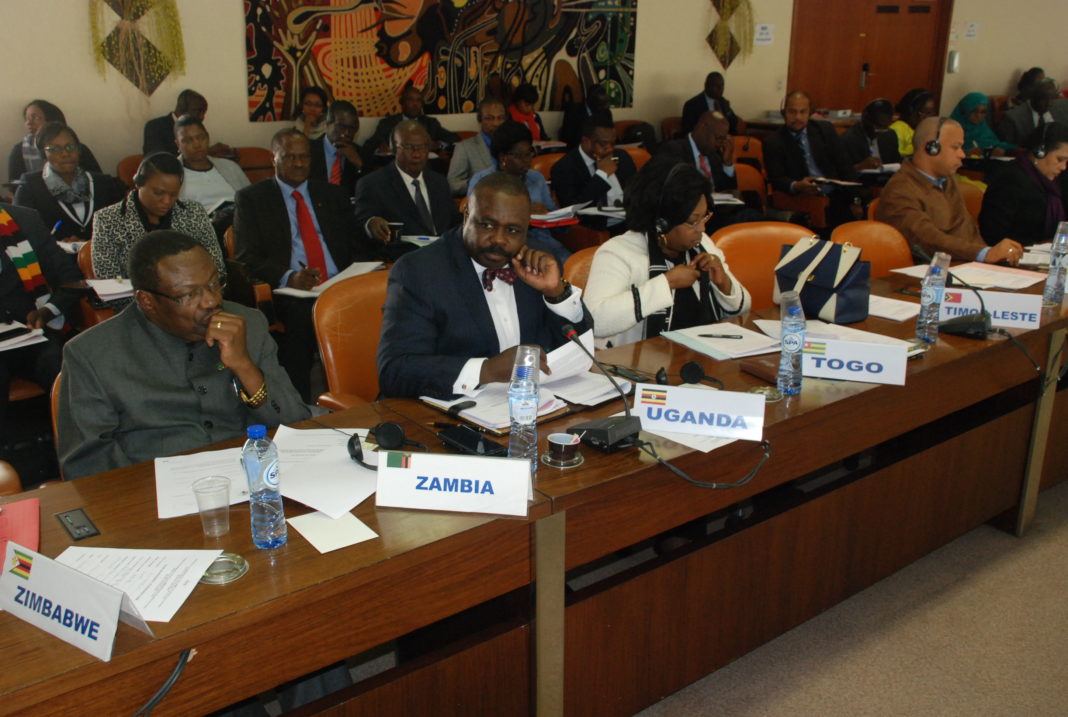The Deputy Speaker of Parliament, Jacob Oulanyah, says it is practically impossible for opposition African, Caribbean and Pacific – European Union (ACP-EU) to be represented in joint parliamentary assembly.
Oulanyah who is leading Uganda’s delegation to the 49th ACP-EU joint parliamentary assembly in Brussels, Belgium from 19 to 24 March 2018 notes that European Union has proposed that the ACP side have representation of the opposition parties to the assembly, which he says is problematic.
“We are not saying there should be no opposition but we are only asking the basis of it and how do you arrange it,” he said.
The Deputy Speaker further added that unlike the European Parliament, the ACP members come from assemblies and that some of the members leading the delegations were from the opposition.
“If we are going to make it a system, how will we select which country should represent the opposition and opposition to what. I propose that on this point, we raise strong objections and when it comes to voting, we vote against it,” Oulanyah added.
He said this while presenting a report as a co-rapporteur on the ACP-EU relations post-Cotonou; a strong parliamentary dimension, Tuesday, 20 March 2018 at the ACP House in Brussels, Belgium.
Oulanyah called for the ACP Assembly to have legislative powers in order to berelevant and not just be a forum for discussions without any impact.
He added that these legislative functions should facilitate the oversight and representative roles of an assembly.
“The European Parliament represents their parties but the ACP is different. We are directly elected by our people and sent to our assemblies and these have sent us here,” he said. Adding “Our foot rests on the people we represent. How do we make these relevant to them?”
He said that the ACP-EU Assembly should not be equated to international NGOs arguing that the Pan African and East African Parliaments should be examples to be emulated in the post 2020 era.
“I am conscious of the difference that this particular framework had with national assemblies but how close can we go to what happens in national assemblies? This has already happened in other regional Parliaments. How do we begin thinking of having such legislative powers,” Oulanyah said.
The ACP-EU Partnership Agreement, signed in Cotonou on 23 June 2000, was concluded for a 20-year period from 2000 to 2020 is set expire on 29 February 2020.
The fundamental principles of the Cotonou Agreement include equality of partners, global participation, dialogue and regionalisation.
The Cotonou Partnership Agreement (CPA) between the EU and 79 African, Caribbean and Pacific countries (ACP) 0. Negotiations on the ‘post-Cotonou’ partnership shall officially begin before 1 September 2018.
Oulanyah also called for unity in the course of the negotiations with the European side stating that there is need to approach it as a block and not as the three regions as is being proposed by the ongoing African Union Summit in Kigali, Rwanda.
“The African block is in a meeting in Kigali right now and we are getting feelers from their statements and they are beginning to affect the context of our negotiations,” he stated.
Following his presentation, the ACP Committee on Political Affairs, chaired by Hon Agnima Alain Michel Lobognon, asked the Deputy Speaker to draft a diplomatic statement to be sent to the African Union Summit stating that there is need for unity in the post-Cotonou negotiations.
Uganda’s delegation to the Assembly also has William Nokrach (PWD, Northern) and Suubi Kinyamatama(Rakai District).
Opposition representation not possible in ACP-EU Assembly – Oulanyah

- Advertisement -






